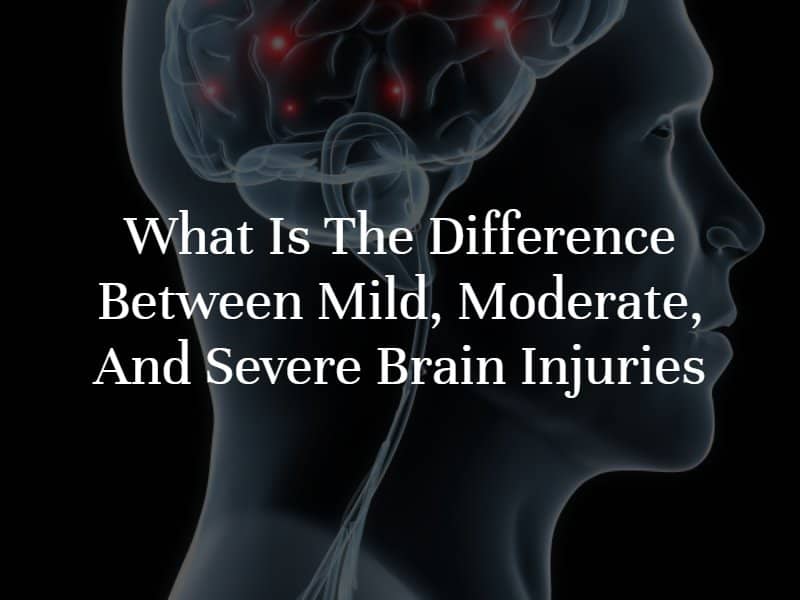A traumatic brain injury (TBI) occurs when a sudden trauma causes damage to the brain. TBIs can be classified as mild, moderate, or severe. Fortunately, approximately 70 to 95 percent of TBIs are mild, and victims recover quickly without long-term effects. However, moderate to severe TBIs are more likely to have a lasting impact and create cognitive, physical, behavioral, sensory, and financial challenges.

What are Mild Brain Injuries?
Many people who sustain a mild TBI recover within three months. Any symptoms that linger will normally disappear or considerably improve within a year of the initial injury. The potential symptoms include:
- Loss of consciousness (a few seconds to a few minutes)
- No loss of consciousness, but a state of confusion or being dazed or disoriented
- Headache
- Memory or concentration problems
- Mood changes or mood swings
- Feeling depressed or anxious
- Nausea or vomiting
- Fatigue or drowsiness
- Problems with speech
- Difficulty sleeping or sleeping more than usual
- Dizziness or a loss of balance
- Blurred vision
- Ringing in the ears
- Changes in taste or smell
The symptoms of a mild TBI can make daily activities challenging. If victims do not take extra time to rest or get enough sleep, symptoms can worsen, or new ones may develop.
What Are Moderate to Severe Brain Injuries?
The effects of a moderate to severe TBI can be long-term and possibly permanent. The immediate symptoms will vary from a mild TBI and may include:
- Loss of consciousness (several minutes to hours)
- Profound confusion
- Persistent headache or headache that worsens
- Repeated vomiting or nausea
- Convulsions or seizures
- Dilation of one or both pupils
- Clear fluids draining from the ears or nose
- Not waking up from sleep
- Weakness or numbness in fingers and toes
- Loss of coordination
- Slurred speech
- Agitation, combativeness, or other unusual behavior
Recovery is possible, but some symptoms may never resolve. As a result, many people with this type of brain injury have to adjust to additional challenges and a new way of life. Particularly when it comes to living independently, working, communicating effectively, socializing and more. For example:
Cognitive Issues
Long-term problems with memory, paying attention and carrying out everyday tasks, planning, goal setting, organizing, making rational decisions, etc.
Physical Disabilities
Long-term physical symptoms such as headaches, seizures, cranial nerve damage, loss of balance, speech problems, difficulty swallowing, paralysis, and more. After several years some of these symptoms may disappear, but they can prevent victims from having a normal lifestyle.
Behavioral Challenges
A victim’s social life and ability to maintain relationships if often impacted due to increased agitation, combativeness, irritability, stress disorders, impulsivity, and severe mood changes.
Sensory Problems
Sensory problems will vary based on the part of the brain that is damaged. However, common issues include being uncomfortable, overwhelmed, or distressed when exposed to stimuli that are part of everyday life (e.g., bright lights, loud noises, touch, etc.).
With a moderate to severe TBI, a victim will likely have to depend on another person or caregiver for help due to their daily pain and limitations. As a result, this drastic lifestyle change can take a toll on mental health, and victims often suffer from fluctuating emotions and depression.


